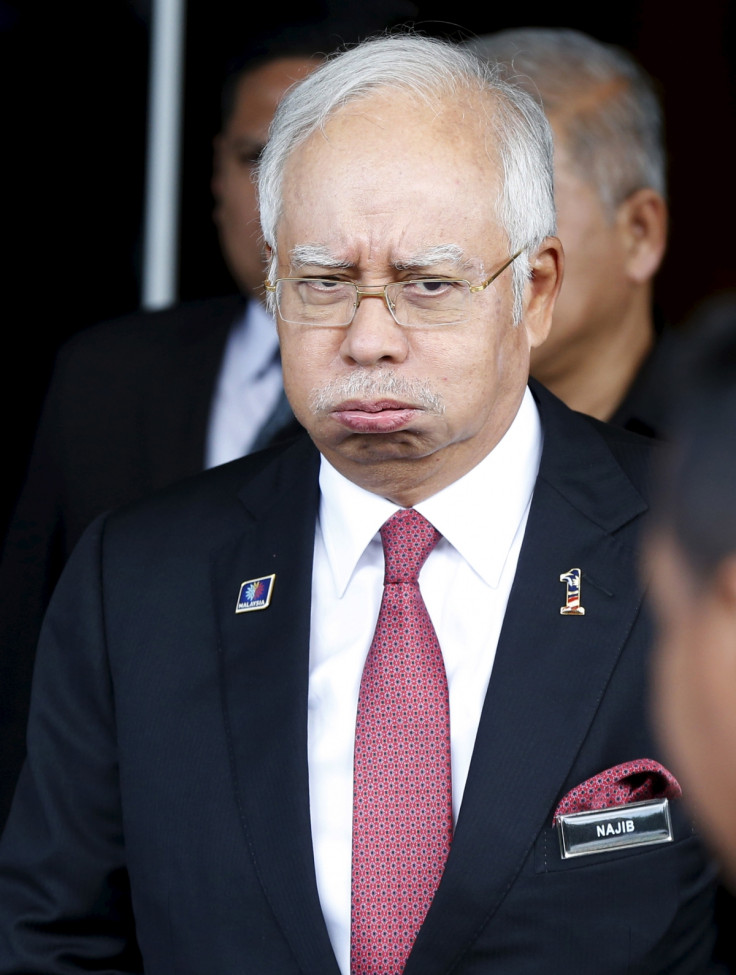Malaysia blocks another news portal as 1MDB scandal deepens over oversight panel probing fund

The Malaysian Communications and Multimedia Commission has blocked online news portal, The Malaysian Insider for violating the Communications and Multimedia Act 1998 after it published a story on the scandal-ridden state fund 1 Malaysia Development Berhad (1MDB).
In a statement released on 25 February, the commission said restrictions were imposed after material published by the news portal were deemed to fall under Section 233 of the Act. "The restriction was also done by the MCMC based on several complaints received from the public."
The commission also reminded other news portals not to "spread or publish articles from unconfirmed sources as the act could create confusion and could trigger an unwanted situation." Those who try to gain access to the news portal are forwarded to the commission's page stating that the website is "unavailable in Malaysia as it violates the National laws."

The portal's editor and chief executive Jahabar Sadiq said that the company had not received any notice from the authorities. "This is an unpleasant surprise. I've tried to contact the MCMC but the officers are in a meeting," Jahabar said.
He has however taken the move in his stride, joking on Twitter that the portal has become the malaysianoutsider.com. Malaysian Insider has asked readers to gain access to its portal via its Facebook page.
If you have trouble accessing TMI, please go to our FB page https://t.co/rlsllyEvhl and WP site https://t.co/vGrZMI44Hh
— Malaysian Insider (@tm_insider) 25 February 2016
This is not the first time the authorities have clamped down on the media. In July last year, the government meted out a three month suspension to The Edge publication for its coverage of 1MDB, claiming that it threatened public order and national security.
The authorities also blocked access to British-based portal, the Sarawak Report, because it violated internet laws. The website, run by Clare Rewcastle-Brown, former BBC journalist and sister-in-law to former prime minister Gordon Brown, had published reports and documents alleging graft and mismanagement at 1MDB.
So what did The Malaysian Insider publish? On 25 February, it claimed that the Operations Review Panel had advised the Malaysian Anti-Corruption Commission (MACC) to re-submit two investigation papers on SRC International Sdn Bhd, a company linked to 1MDB, to the attorney general, saying that there is credible evidence to frame charges against Prime Minister Najib Razak.
The website quoted a panel member who did not wish to be identified as saying: "The MACC investigators had collected sufficient evidence to prove a prima facie case against Najib. We came to the conclusion as MACC investigators had also briefed us on the case. They had also answered all our queries." The panel is said to have told investigators to resubmit their investigation papers to the attorney-general.
Attorney General Mohamed Apandi Ali, who recently took up his post after his predecessor was let go due on health reasons by Najib, had on 26 January stated that there was insufficient evidence to charge the prime minister over 1MDB.
The claims made by The Malaysian Insider report were vehemently denied by the authorities. Hamid Bugo, the panel chairman, claimed that the person who had spoken to the news portal was not authorised to so and had misrepresented what the panel had decided.
"We further wish to add that [the] panel did not at any time say that it had 'enough proof to charge Najib over SRC' as claimed by the title of the article, or that 'there is credible evidence to frame charges'," against the prime minister, the statement said. Further, the panel also did not conclude that sufficient evidence had been gathered to prove a prima facie case against Najib.
Bugo however acknowledged that the panel did advise MACC to complete its investigation. This has been confirmed by MACC in a statement on its website. The panel had recommended that help be sought for Mutual Legal Assistance to enable it to obtain evidence and documents from financial institutions outside the country as part of the investigation.
There is another twist. The terms of the oversight panel, whose members are appointed by the prime minister, expired on 24 February 2016. No replacements were announced, giving rise to fears on whether the panel will continue in its present form.
MACC head Abu Kassim Mohamad denied news reports that the panel was being abolished. He said the government was in the process of appointing members to both the Operations Review Panel and the Consultation and Corruption Prevention Panel, which were formed under the MACC Act 2009.
He also said the panel's recommendation to MACC on 1MDB should not be misinterpreted as challenging the attorney general who had already cleared Najib of any wrongdoing. He stressed that the power to prosecute lies with the Attorney-General under the federal constitution.
According to the Wall Street Journal, a Malaysian parliamentary committee looking into allegations of graft at 1MDB said it would delay until early March a meeting scheduled for this week to scrutinise the report by AG Mohamed Apandi on 1MDB's activities.
© Copyright IBTimes 2025. All rights reserved.






















